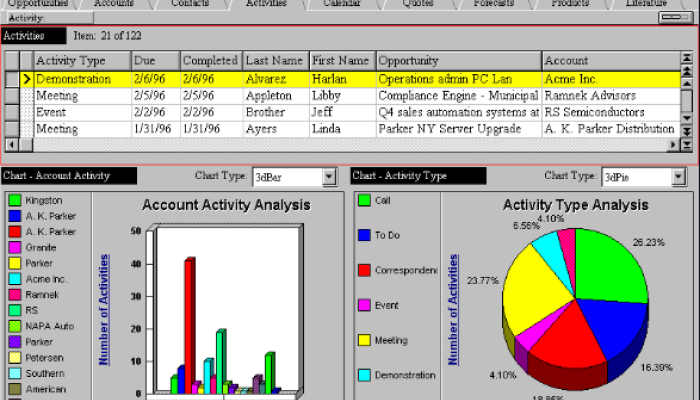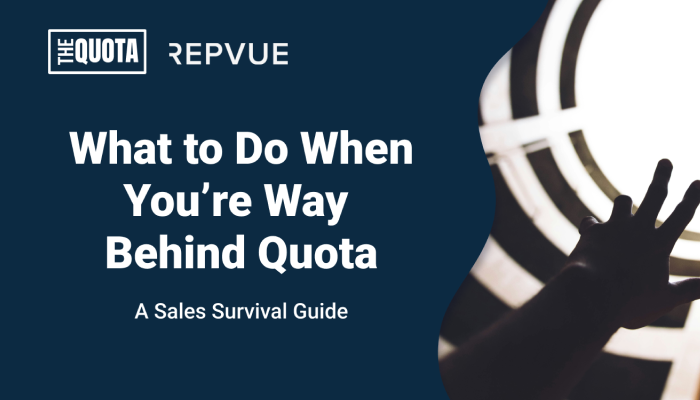
For this week’s interview, we reached out to Jeb Blount, prolific sales author and one of the best-known sales trainers in the world. We’ve known Jeb for a while, and he was kind enough to take the time to answer our questions. If you’d like to check out his newest book, Selling in a Crisis, you can find it here.
Q. First things first. Tell us about your new book!
My brand new book is called Selling in a Crisis, following on the heels of Selling The Price Increase. Selling The Price Increase is about selling in volatile times, and selling at different levels of pain. It’s about going through the most difficult thing you can do as a business (increasing price) without losing customers.
Selling In a Crisis is about selling through noise, when times are volatile, and not losing customers along the way. Selling in a Crisis, written over the summer, is much different from past books I’ve written because it's shorter and sweeter. There are 55 easy-to-consume chapters. They’re quick and hard-hitting. It’s perfect for daily inspiration as you're out there grinding and looking for new business.
Q. You’re one of the best-known sales trainers in the world. How did you get here?
Well, it’s taken a long time. I started 15 years ago. Back then, I created Sales Gravy and wrote my first book. A lot of it was through brute force; lots of grinding and making mistakes to hone the craft and get better. A lot of it was hiring the right people. I work with a lot of great people who make it possible for me to do what I do and to write books – bringing on new clients and hiring new trainers to grow and execute the business. I put my entire philosophy in my books which allows people to understand exactly what they are going to get. Most companies aren't like us; they hide their tactics and philosophy. We put the entire thing in our books so people know exactly what they’re going to get.
Q. Before you became a trainer, what did you sell?
I’ve sold a lot of stuff. Dead animal funeral services when I was 13. I sold yearbook ads in high school. Newspapers subscriptions and distribution. Nutrisystem and weight-loss products. I sold 3d printing projects, industrial uniforms at Aramark. On-site child care services – corporate level childcare and education to big companies, which was the most rewarding thing I ever sold. Insurance, radio ads, job board ads, and now I sell sales training.
Q. If there was one thing you could change about the way sales teams operate today, what would it be?
This is a strong opinion. Sales teams have gotten a bit too passive. When I was coming up, it was a survival of the fittest business. You either survived or drowned. Sales teams have allowed mediocrity – leaders don’t have the ability to hold people accountable. The biggest mistake reps are making is that they’re just doing email outreach – spamming people. No one wants to hold salespeople accountable for knocking on a door or picking up the phone. There should be less kumbaya and more survival of the fittest. Sales teams should focus on hiring and retaining the best people and rewarding them. Focus on your job: sales/producing. It’s like pro sports. If you’re not winning, you get kicked off the team.
Q. One thing that many sales reps struggle with is staying motivated and consistent. Do you have any advice that can help sales reps with these things?
When it comes to motivation, the number one thing is knowing what you want. The easiest way to stay motivated is to tap into desire. If you think about what you do in selling, it's not natural. It's not natural to go out and seek rejection. Prospecting, micro commits, closing deals – all require facing rejections. It's not easy, but if you know what you want to accomplish, it's easier to get over the hump. Let’s say you want to remodel your condo. How much money do you need?
If you know how much money you need, it can motivate you to make calls, and make sacrifices to get what you want.
Being consistent is about discipline, about having a daily battle rhythm. You need to make a decision to be consistent. Being consistent can be boring. Lots of sales people like the chaos, but being consistent and deciding to have a routine and doing the same thing every day is how you win. If you look at the top 3 salespeople at any company in the world, everyone has a daily routine that they stick to, sometimes even drinking out of the same coffee cup. No one can make decisions for you, and there’s no “easy” button. Only you can decide to be consistent.
Q. The growth of LinkedIn has ushered in hundreds (thousands?) of new sales influencers. Do you think this is a good thing, or does it muddy the waters?
I always think it's a good thing when there is information people can have for free. It's a good thing people are interested in sales now. My life has been dedicated to advancing sales as a profession. As a discipline, there isn’t only one way to do things, it’s not black and white. I'm a student of probability. With every given customer at any given point, there's a move that will give you a higher probability than another.
There's some people that have no idea what they're talking about on LinkedIn. They had one successful year and now tell people “this is the only way to do sales.” Smart salespeople take everything in and try it to see what works. It's all about probability. Your job as a sales pro is to use high IQ and intuition – which techniques, tools, processes, and questions will give the highest probability of getting your desired outcome? As a trainer and author, I would never tell someone THIS (one way) is the only way of doing things.
Q. If you could only give one piece of sales advice to every sales rep in the world, what would you say?
Talk with people. The more people you talk with, the more you’ll sell. Stop texting, get off email, pick up the phone, walk in the door, and have a conversation. Email and text isn't bad, it's part of the technique for prospecting/sales. But whether you're prospecting or moving to the next step, have conversations and talk with people. If you're not talking to people, I can hire a robot to talk to people. If you're not talking to people, I don't need you.
Q. What is your favorite sales (or sales adjacent) movie?
That’s a hard question. My favorite sales movie is probably Tommy boy, and my favorite sales-adjacent movie is Moneyball. Moneyball is a probability movie. What's the probability of getting on base? What’s the probability of getting home? This makes it extremely applicable to sales.







